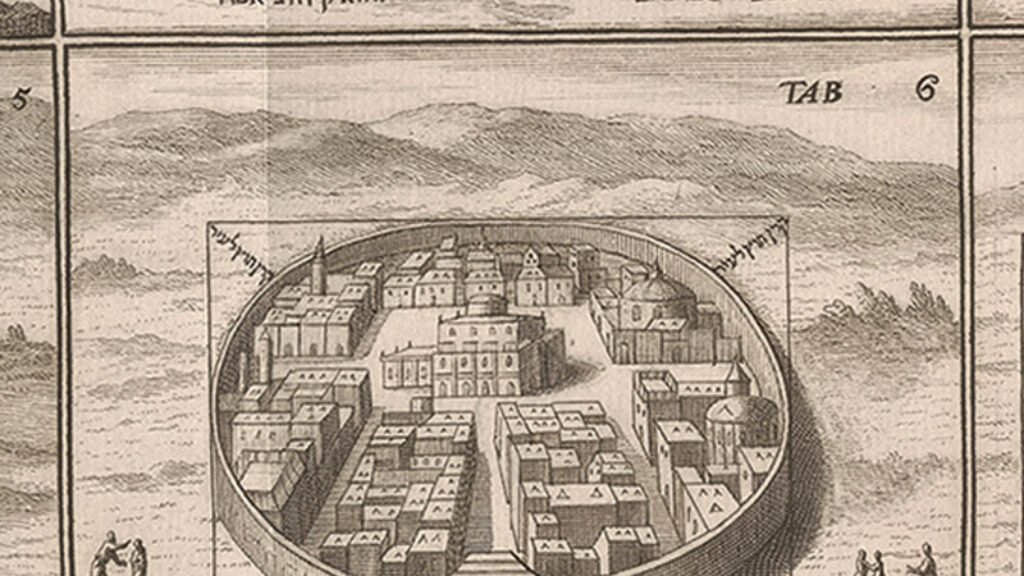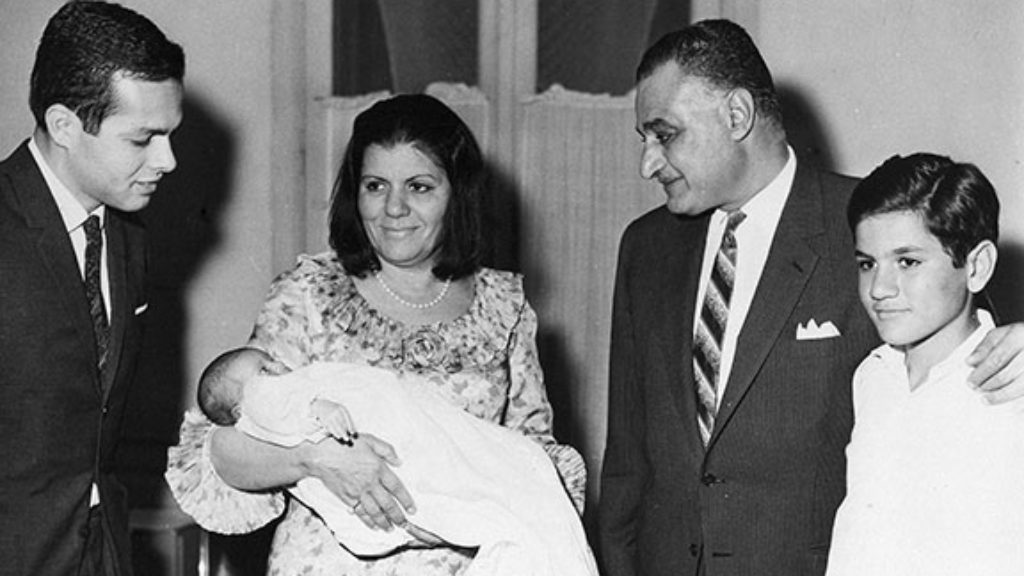What Zionism Delivered
Ever since what Hillel Halkin calls my “bloc” lost Israeli elections, I have tried various therapies to manage my disappointment—and fear. I visited Susya, the ancient town near Hebron, examining the partially reconstructed synagogue from 300 CE to remember that, as Halkin acknowledges, these disputed lands are “part of my people’s heritage.” I read Benjamin Netanyahu’s memoir Bibi to remember that Netanyahu helped transform Bureaucracy Central into Start-Up Nation and, for all my criticisms, has not played with the lives of my four children, who have all served as soldiers under him. And finally, I went on two US speaking tours that stirred my instinctive Israeli patriotism and Zionist optimism after encountering so many American Jewish critics who are unhinged, unsophisticated, and unkind.
When I read Halkin’s sobering essay, “On That Distant Day,” I needed a bolder intervention. I needed a soaring, inspiring injection of historical perspective, Zionist passion, and Jewish hope. The prescription was obvious: I reread Halkin’s rousing Letters to an American Jewish Friend, including his preface to the book’s 2013 rerelease.
When Halkin’s “Zionist polemic” appeared in 1977, he was swimming against the historical tide. The Israel he celebrated was fragile, harsh, and depressed. As Halkin recalled in 2013, “Israel was an angry place then. It was still licking its [Yom Kippur War] war wounds. Taxes had been raised on everything to meet the war’s costs and Israelis were struggling to make ends meet. The future looked bleak. . . .” Halkin also recognized that for many American Jews, “Israel was no longer the can-do-no-wrong country it had been for them in 1967.”
The Israel Halkin moved to in 1970 was a provincial backwater run by an undemocratic, heavy-handed Branja, the clique of Israel’s WASPs—White Ashkenazi Sabras with Protekzia. “Protekzia,” that Israeli-made fuel that greased the few blue-and-white wheels that actually revolved then, required kowtowing to the Labor Party.
Nevertheless, we young American Zionists in Young Judaea worshipped these mostly Eastern European-born Israeli superheroes, barely aware of the social, cultural, and political damage they wrought in founding the state, absorbing nearly two million new citizens, and protecting the country from its murderous neighbors.
Halkin knew the cost outsiders paid—be they Mizrachim, right-wingers, or olim—but he still loved Israel. His Letters pushed us past Israel’s pressing impossibilities in order to appreciate its enduring possibilities. We absorbed his love: the faith and excitement that Israel was the most important Jewish place on Earth.
Halkin also taught that as Jews our love for Israel could not be conditional. Israel should not be on probation, with its legitimacy only accepted by other Jews, or the world, as long as it plays nice and fulfills some American Jewish fantasy.
Subsequently, Israel’s miraculous development—and democratization—made Halkin’s words easier to accept year by year. For all the challenges since 1977, starting with the shock to cultured American Jews of the “fascist” Menachem Begin’s election that May, Israel has flourished. By almost any indicator of quality of life—or democratic vitality—it’s better than ever. I challenge my Arab, LGBTQ+, female, Mizrahi, or secular friends to pick a better moment for them and their peers—individually and collectively, culturally and politically—to be Israeli.
I believe, as one of my favorite writers wrote in 2013:
There’s been nothing like it in human history. A small and ancient people loses its land and forgets how to speak its language; wanders defenselessly for hundreds, thousands, of years throughout the world with its God and sacred books; meets with contumely, persecution, violence, dispossession, banishment, mass murder; refuses to give up; refuses to surrender its faith; continues to believe that it will one day be restored to the land it lost; manages in the end, by dint of its own efforts, against all odds, to gather itself from the four corners of the earth and return there; learns again to speak the language of its old books; learns again to bear arms and defend itself; wrests its new-old home from the people that had replaced it; entrenches itself there; builds; fructifies; fortifies; repulses the enemies surrounding it; grows and prospers in the face of all threats. Had it not happened, could it have been imagined? Would anyone have believed it possible?
My family reads that passage of hopeful Halkinism at our seder each year—and will continue the tradition.
So, what we have here is a case of clashing crystal balls: mine is sunnier, Halkin’s is cloudier. I hope I am right, but who knows if Halkin’s new pessimism or my ongoing, Halkin-nurtured optimism will be vindicated? As an historian, it’s hard enough to predict the past, so I won’t touch the future. I do know that the daily texture of Israeli democracy—what Alexis de Tocqueville called the “habits of the heart,” what I call the songs of the street—is far stronger than Ben-Gvir, Smotrich, or Deri, let alone Bibi.
Finally, while I cannot quibble about what tomorrow will bring, I will, with trepidation, question Halkin’s interpretation of what Zionism delivered. Zionists long ago stopped trying to de-Judaize Israel and make the Jewish State “normal.” Zionism was always deeply Jewish, charmingly idealistic, massively ambitious, and frequently messianic. When I examined hundreds of Zionist texts to prepare my recent anthology The Zionist Ideas, I sought one expression of Zionist normalcy, one leading Zionist affirming that the only thing Zionists desire is to “live at last as free people on our own soil, and in our own homes peacefully die.” But Theodor Herzl himself, who concluded Der Judenstaat, his 1896 Zionist manifesto, with those words, could not stop there. He believed—along with every other secular mainstream Zionist—that fulfilling our particularist dream, catalyzed by Jewish values, would do universal good. “The world,” Herzl gushed, “will be liberated by our freedom, enriched by our wealth, magnified by our greatness.”
So, yes, I am appalled. I fear that this government has unleashed demons of bigotry, demagoguery, gay-bashing, sexism, and anti-Arab hatred that will be hard to tame. I don’t want the Israeli taxpayer drained—further—to subsidize ultra-Orthodox anti-Zionists on the dole. And constructive leaders adjust court-Knesset relations with a scalpel, not missiles. But no, I won’t give up or give into despair.
Our hope is not yet lost. I will continue fighting to reinforce Israeli democracy and expand every Israeli’s civil liberties. I will also continue to be inspired by the many Zionist dream catchers I revere, from Theodor Herzl to my friend, my role model, my hope-generator when things were far bleaker, Hillel Halkin.
Comments
You must log in to comment Log In
Suggested Reading
A Tale of Two Stories
In their respective new books, Schama and Feiner attempt not to relate the whole history of the Jews during the period covered by their volumes but to tell their story—indeed, to a large extent, to let them tell their story in their own words, culled from their letters, diaries, and autobiographical works.
Old Isaiah
When Woodrow Wilson became the first president to nominate a Jew for a seat on the Supreme Court, much of the opposition to his appointment revolved around his Jewishness.

Mysterious Mishnah
According to a midrash, God will tell the contending nations: “He who possesses my mystery—he is my son.” And when they ask “What is your mystery?” God will reply, “It is the Mishnah.” How do you translate a mystery?

Our Kind of Traitor
More than 40 years after the Yom Kippur War, some of its battles rage on, including the debate over the spy Ashraf Marwan’s true loyalty.
Jeffrey Woolf
I must demur with of Prof. Troy's points. Among Israel's ruling elites (Academic, Cultural, and Judicial) there is a clear and definite agenda to strip Israel of its Religious and National identity, and all public expressions thereof. The systematic draining of the education system of any form of Jewish literacy and historical knowledge are proof of that fact. Indeed, many who voted (against their better inclinations) for Smotrich and Co. did in reaction to the aggressive Kulturkampf that the other side is waging.
David Z
I think the truth is in between. You are right that Prof. Troy glosses over continuing attempts, but Judaism has never been stronger in Israel among the "secular" and therefore the group trying to do these things is smaller (i.e. more "elite"). Hopefully that's a continuing trend. But that's why the Supreme Court is so important--it doesn't reflect Israeli society anymore (or if it never did, the gap is larger than ever). I don't know the solution to balancing the Supreme Court and the Knesset, but the current situation is pretty bad. One thing to remember is that when the right wing, however defined, has a majority in the Knesset that pretty much means it has a supermajority of Jews since most Arabs are going to be on the "Left" side of the Knesset if they vote at all. (Of course there are Druzim and many others who vote for Likud because they want a strong Israel and hate the PA for good reason.)
Gil Troy
Two quick annoying facts - a. Smotrich, Ben-Gvir etc (The Religious Zionist Party) only received 11 percent of the vote -- and many of those voters were more motivated by fear of Arabs and frustration with Naftali Bennett than concern with any elites and b. if there is a conspiracy "to strip Israel of its Religious and National identity, and all public expressions thereof," -- these evil elites are doing a TERRIBLE job. Check out the stats in Shmuel Rosner's and Camil Fuchs' book #IsraeliJudaism - or better yet, wander around Israel on Shabbat, Yom Kippur, Chanukkah, etc...
David Z.
Prof. Troy: (1) Your essay was wonderfully erudite and eloquent--thank you. (2) 11% of "the vote" is a much higher percentage of the Jewish vote (that's always an annoying fact--that the right wing majority of Israelis means a supermajority of Israeli Jews). (3) I think Mr. Woolf is correct in that there remain such an elite (and they certainly control the Supreme Court which makes that issue so contentious) but you are also very correct that Judaism is more en vogue now than it has ever been. That is what had been a real struggle at one point is now "just" a few elites against the majority of the population, even those that call themselves secular. Anecdotally, I was on a plane with a woman who insisted she was "hiloni" but was shocked at my even asking if she was giving her son a brit mila. Hiloni simply doesn't mean what it used to.